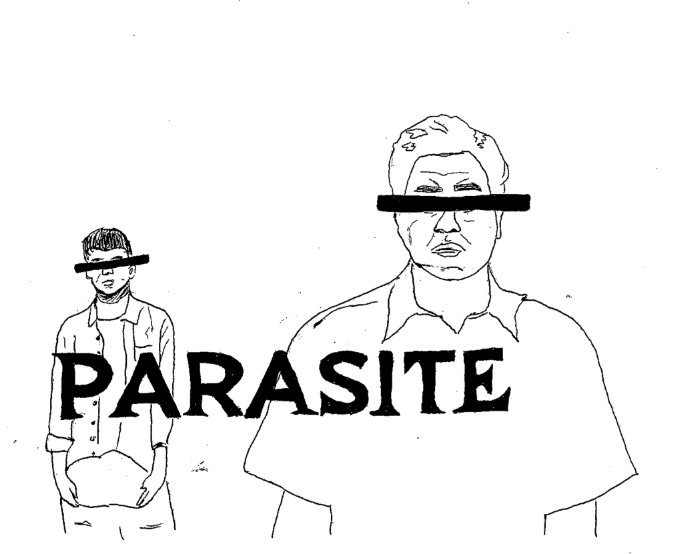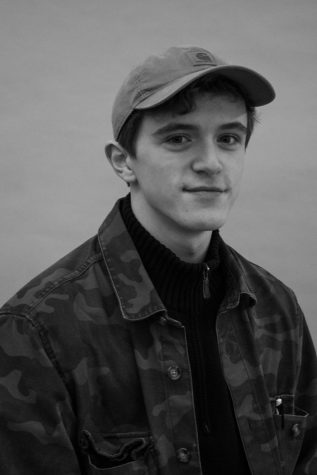“Parasite”: A Topical Yet Universal Tale of Class and Struggle
Bong Joon-Ho’s Film Places Social Hierarchy Into Perspective
March 5, 2020
Not everyone can imagine the feeling of true poverty. That prideless desperation is a fate saved for a select few, while those safely away from such misfortunes remain blissfully unaware of what they’ve been spared. I feel confident in my belief that if any other filmmaker was in the shoes of director Bong Joon-Ho, their creation would likely be titled something along the lines of “The Grass is Always Greener,” or “A Look Into Other People’s Houses.” Instead, the perspective chosen for this dissection of social rank was appropriately named “Parasite.”
We open on the Kim family of South Korea, living their day to day lives. Daunting monetary struggles are evident in their subterranean dwelling. Both the son, Ki-Woo (Woo-Sik Choi) and daughter, Ki-Jung (So-dam Park) show themselves to be cunningly intelligent youths, possibly held down by their preference for the path of least resistance (Even when that path lies in forgery). Motivated by the notion that the world owes him more, Ki-Woo might have sunk further into his self-pity, if not for a fateful visit from an old schoolmate, Min (Seo-Joon Park). As he is soon to leave the country, Min comes to Ki-Woo offering to take his place as the English tutor for the daughter of the affluent Park family. As soon as Ki-Woo is taken in as a tutor for the family, he is naively trusted by the Park family enough that Ki-Woo begins to push his luck by positioning the rest of his family with similar jobs in the house. Feeling they are owed what the Park’s have, the Kims feel no guilt for their dishonesty, seemingly never satisfied with what they have as long as the possibility for more is still within grasp. As they continue to push into the Park home, however, an entirely new level to their plot is left to be discovered.
While the viewer initially feels sympathy for the Kim family, the longer they latch themselves onto the Park’s, the more intimately you see their progression into depravity. Not for a second do they feel remorse toward the people they’ve displaced for their positions, believing sincerely they’re deserving of their ‘good fortune.’ Even toward the oblivious Park’s, the Kim family maintains that “[the Park’s are] rich, they have more than they deserve” while still feeling entitled to more themselves. The father, Kim Ki-Taek, knows that the Park’s will forever hold him and his family below themselves, as they cite his specific stench, which seems to haunt him in the same moments as his shame.
Parasite’s message presents itself most bluntly in the juxtaposition that comes between the pristine, seemingly sanitized accommodations of the Park family against the Kims subterranean apartment. Surrounded by garbage, Joon-Ho uses no subtlety to show where the Kims reside: beneath those richer than them. As the camera hovers on Ki-Woo, despite knowing the fine line of lusting for wealth and its effects, his dream remains the same one dreamt by all who have yet to escape poverty: to be rich.
This piece also appears in our February 2020 print edition.










